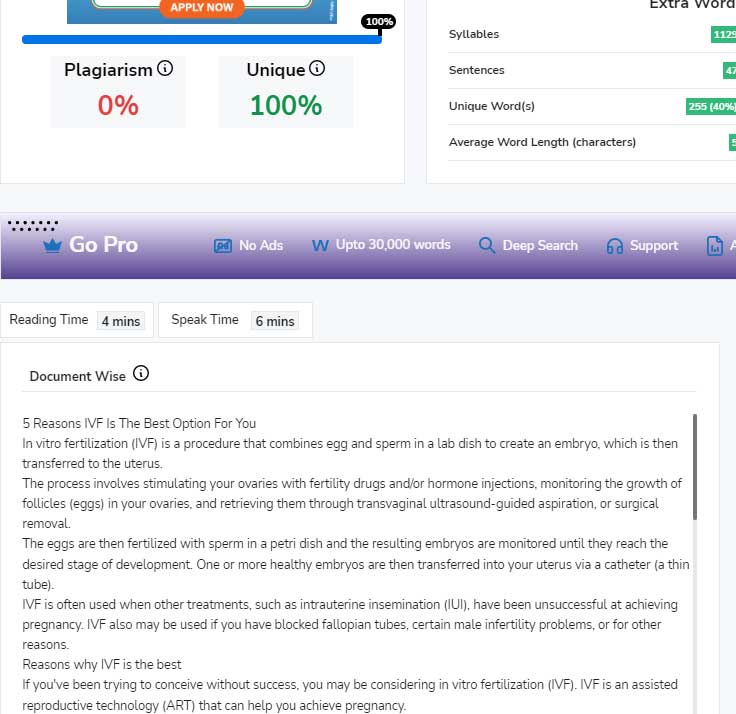
In vitro fertilization (IVF) is a procedure that combines egg and sperm in a lab dish to create an embryo, which is then transferred to the uterus.
The process involves stimulating your ovaries with fertility drugs and/or hormone injections and monitoring the growth of follicles (eggs) in your ovaries. Also, retrieving them through transvaginal ultrasound-guided aspiration, or surgical removal.
The eggs are then fertilized with sperm in a petri dish and the resulting embryos are monitored until they reach the desired stage of development. One or more healthy embryos are then transferred into your uterus via a catheter (a thin tube).
IVF is often used when other treatments, such as intrauterine insemination (IUI), have been unsuccessful at achieving pregnancy. IVF also may be used if you have blocked fallopian tubes, certain male infertility problems, or for other reasons.
If you’ve been trying to conceive without success, you may be considering in vitro fertilization (IVF). IVF is an assisted reproductive technology (ART) that can help you achieve pregnancy.
While IVF may seem like a daunting and expensive option, it is actually one of the most effective fertility treatments available. Here are five reasons why IVF may be the best option for you:
The success rate of IVF depends on a number of factors, including the age of the woman and the quality of the eggs. However, overall, IVF has a high success rate.
According to the American Society for Reproductive Medicine (ASRM), the success rate of IVF is about 40 percent for women under 35. The success rate declines as a woman’s age increases.
One of the great things about IVF is that it can help you conceive twins or triplets. In fact, about 30 percent of IVF pregnancies result in twins.
While having twins or triplets may not be what you originally planned, it can be a great blessing.
If you have male factor infertility, IVF can help. Male factor infertility is a condition in which the man’s sperm is unable to fertilize the woman’s egg.
In IVF, the man’s sperm is injected directly into the woman’s egg. This bypasses the need for sperm to travel through the man’s reproductive tract.
For women with female factor infertility, IVF can help them become pregnant.
Female factor infertility is a condition in which the woman’s reproductive system is unable to support a pregnancy.
There are many causes of female factor infertility, including endometriosis, uterine fibroids, and polycystic ovary syndrome (PCOS). IVF can help you conceive even if you have one of these conditions.
IVF helps many women, including those with fertility problems like you, become pregnant.
Fertility problems can be caused by a variety of factors, including age, lifestyle, and health conditions.
IVF can help you overcome these obstacles and give you the best chance of conceiving.
If you’ve been trying to conceive without success, IVF may be the best option for you. IVF is a highly effective fertility treatment that can help you overcome a variety of fertility problems.
IVF fertility treatments are the fastest way for a couple who has been having trouble getting pregnant, to finally achieve their dream of starting a family.
It is not uncommon for couples to feel frustrated that they have not been able to conceive naturally after several months. Many end up giving up and resigning themselves to being childless.
However, there is hope as most often than not, this infertility is due to an underlying condition or factor that can be resolved with early detection using techniques like IVF.
